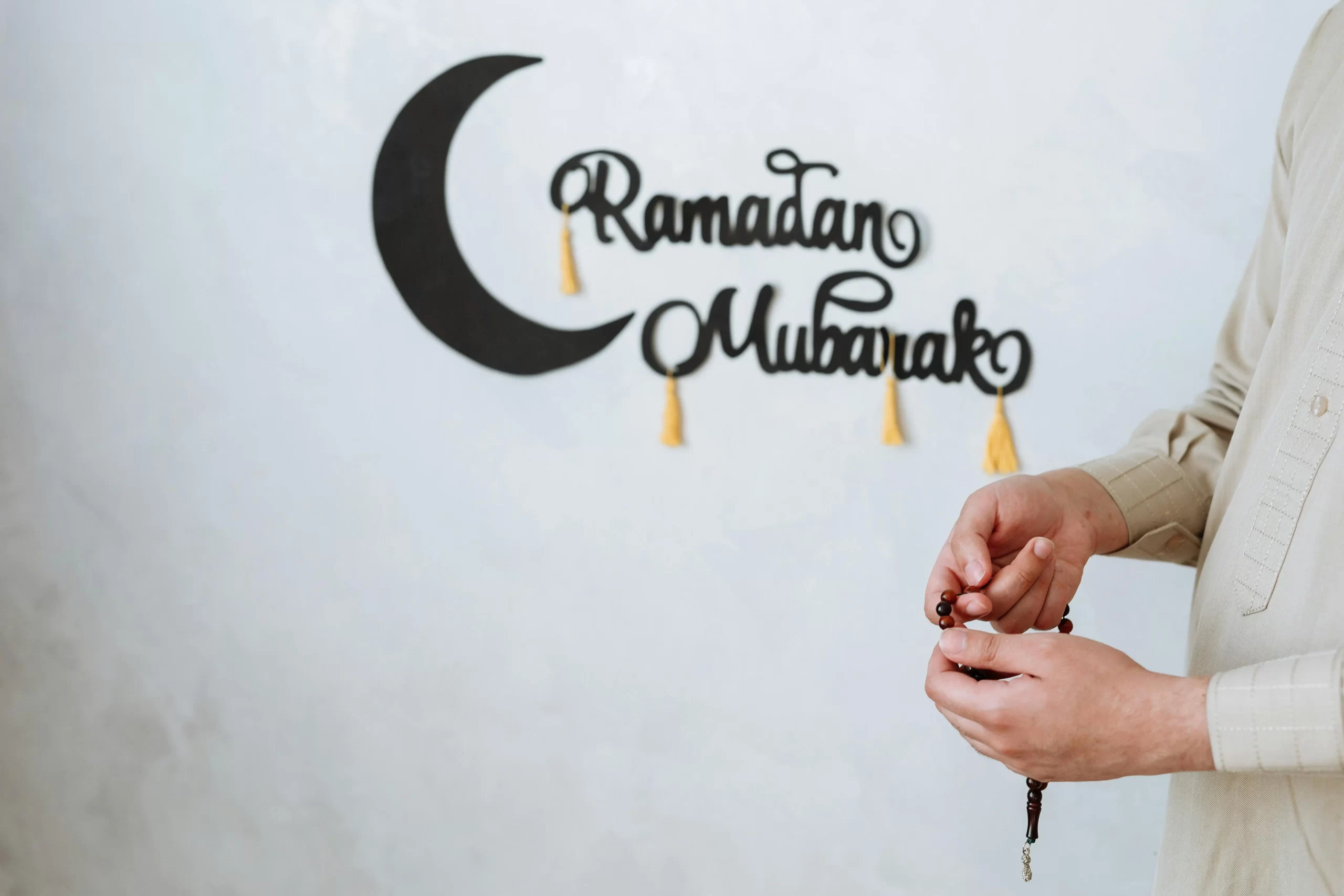Ramadan is one of the 12 months in the Islamic (Hijri) calendar. It is a very important month in Islam. It is distinguished from other months by a number of specific features and virtues, including:
Allah, the Almighty and Majestic, made fasting during this month the fourth pillar of Islam. Regarding this, He said: “And whoever is ill or on a journey, then an equal number of other days.” (Quran, 2:185). It has been reported in the two authentic hadith collections of al-Bukhari (8) and Muslim (16) from a hadith of Ibn Umar that the Prophet ﷺ said: “Islam is built on five pillars: to testify that there is no god but Allah, and that Muhammad is His servant and messenger, to observe the prayer, to give zakat, to fast during Ramadan, and to perform the pilgrimage to the House (Makkah).”
Allah, the Almighty and Majestic, revealed the Qur’an during this month, as He says in the previous verse: “And whoever is ill or on a journey, then an equal number of other days.” (Quran, 2:185). The Transcendent also says: “Indeed, We sent it down during the Night of Decree.” (Quran, 97:1)
Allah has placed in it the Night of Decree, which is better than a thousand months, as stated by Allah, the Exalted:
“Indeed, We sent it down during the Night of Decree. And what will make you know what the Night of Decree is? The Night of Decree is better than a thousand months. During it, the angels and the Spirit descend by permission of their Lord for every matter. It is peace and tranquility until the emergence of dawn.” (Quran, 97:1-5)
He also said: “We sent it down on a blessed night.” (Quran, 44:3).
Allah has made Ramadan better because of the Night of Decree. To explain the merit of this night, He revealed the Surah of Decree to show the significance of this blessed night. The content of this Surah is supported by numerous hadiths, including one narrated by Abu Huraira (may Allah be pleased with him), in which the Messenger of Allah (Blessings and peace be upon him) said:
“Ramadan has come to you: a blessed month in which Allah, the Almighty and Majestic, has prescribed fasting for you. The gates of heaven are opened, the gates of hell are closed, and the rebellious devils are chained. Allah has placed in it a night that is better than a thousand months. Truly, he is deprived who does not benefit from it.” (Reported by an-Nasa’i, 2106, and Ahmad, 8769, and deemed authentic in Sahih at-Targhib, 999).
Another hadith from Abu Huraira (may Allah be pleased with him) states that the Messenger of Allah (Blessings and peace be upon him) said: “Whoever spends the Night of Decree in prayer, with faith and a desire to seek the pleasure of Allah, Allah will forgive his past sins.” (Reported by al-Bukhari, 1910, and Muslim, 760).
Allah, the Almighty and Majestic, has made fasting with faith and the desire to please Allah a means of forgiveness for sins. This has been reliably reported in the two authentic hadith collections: al-Bukhari (2014) and Muslim (760), from a hadith of Abu Huraira, in which the Prophet (Blessings and peace be upon him) said: “Whoever fasts during the month of Ramadan with faith and a desire to please Allah will have their past sins forgiven.” In the same sources, al-Bukhari (2008) and Muslim (174), there is another hadith reported by the same Abu Huraira, in which the Prophet (Blessings and peace be upon him) said: “Whoever spends the nights of Ramadan in prayer with faith and a desire to please Allah will have their past sins forgiven.”
All Muslims are unanimous in considering the nightly prayers of Ramadan as a Sunnah. According to an-Nawawi, the nightly prayers of Ramadan refer to the Tarawih prayers, and it is sufficient to participate in them.
Allah, the Almighty and Majestic, opens the gates of Paradise and closes the gates of Hell, and chains the devils during this month. In this regard, a hadith reported by al-Bukhari (1898) and Muslim (1079) from Abu Huraira states that the Messenger of Allah (Blessings and peace be upon him) said: “When Ramadan begins, the gates of Paradise are opened, the gates of Hell are closed, and the devils are chained.”
Fasting during Ramadan leads to the expiation of past sins committed since the previous Ramadan, with the exception of major sins, as indicated in this authentic hadith reported by Muslim (233), in which the Prophet (Blessings and peace be upon him) said: “The five daily prayers, the prayers of Friday, and the fasts of successive Ramadans expiate the sins committed between them, provided one avoids the major sins.”
The minor pilgrimage (Umrah) performed during this month is equivalent to a major pilgrimage. Al-Bukhari reported (1782) and Muslim (1256) from Ibn Abbas that the Messenger of Allah (Blessings and peace be upon him) said to a woman from the Ansar: “Why did you not perform the pilgrimage with us?” She replied: “We have only two camels for provision… Her husband and son used one for the pilgrimage, and we kept the other to fetch water.” The Prophet (Blessings and peace be upon him) said to her: “When Ramadan arrives, perform the minor pilgrimage (Umrah) as it is equivalent (in this case) to a major pilgrimage.” A version of Muslim clarifies: “A pilgrimage performed in my company.”


